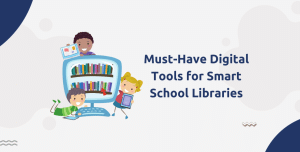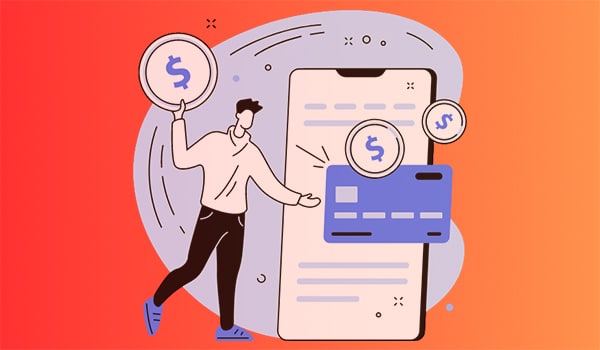Top Digital Services Your Library Website Should Promote: A Complete Guide for Modern Libraries
In an era where nearly everything is accessible with one click, library websites play a more important role than ever. Today’s patrons expect quick access to information, digital resources, and online tools—without needing to step inside the building. That means your website isn’t just a digital brochure; it’s an online branch of your library.
To help you strengthen your online presence, this guide breaks down the top digital services your library website should promote, why they matter, and how to present them in a user-friendly way. Whether you’re redesigning your site or simply refreshing your content, you’ll find strategies here that make your services discoverable, engaging, and genuinely useful for your community.
Why Promoting Digital Services Matters
Libraries have always been about access—access to knowledge, community, technology, and learning. But the shift toward digital tools has transformed how people interact with information. Patrons now:
-
Search your website before they visit the building
-
Prefer self-service options
-
Look for instant access to digital materials
-
Want clear, simple navigation
-
Expect mobile-friendly experiences
When your website clearly promotes your digital offerings, you help patrons find what they need faster while elevating the value of the library in their daily lives.
Top Digital Services Your Library Website Should Promote
Below are the core services your website should feature prominently, followed by a step-by-step guide on how to present them effectively.
1. Digital Collections (eBooks, Audiobooks & Streaming Media)
Your digital collection is often the most frequently used online service, so it deserves prime placement. Highlight:
-
eBook platforms like OverDrive/Libby, hoopla, or cloudLibrary
-
Digital audiobooks
-
Streaming video content
-
Digital magazines and newspapers
Make the pathway from your homepage to these collections clear, simple, and well-branded. Consider featuring:
✓ Direct platform links
✓ “Get Started” guides
✓ New or popular digital titles
✓ How-to videos for apps
2. Online Databases & Research Tools
From scholarly journals to genealogy resources, online databases are essential. Promote:
-
Academic research databases
-
DIY and hobby databases
-
Genealogy tools (e.g., Ancestry Library Edition)
-
Consumer information databases
-
Business and career resources
Many patrons don’t know these tools exist—so showcasing them prominently increases awareness and usage.
3. Virtual Reference & Ask-a-Librarian Services
Whether via chat, email, phone call, or video appointment, your online reference services should be highly visible.
Features to include:
-
Real-time chat widget
-
Virtual appointment request forms
-
FAQs or searchable knowledge base
-
Clear staff availability times
These tools reinforce that the library is always there to help—even outside of operating hours.
4. Online Library Card Registration

Patrons love convenience. Allow users to sign up for a library card online or request a temporary digital card.
Benefits include:
-
Immediate access to digital content
-
Increased community engagement
-
Streamlined onboarding
Place this option where patrons can’t miss it—ideally on your homepage and catalog pages.
5. Event Calendars & Online Program Registration
Promote:
-
Virtual events (webinars, storytimes, workshops)
-
In-person programs
-
Online sign-up or ticketing tools
-
Email reminders and calendar syncing
Events are a major draw, and frictionless online registration helps boost participation.
6. Learning Platforms & Skill-Building Tools
Your digital learning resources should shine. Consider highlighting:
-
Online courses (LinkedIn Learning, Gale Courses, Universal Class)
-
Language learning apps like Mango Languages
-
Coding or STEM platforms
-
Early literacy tools for families
Patrons often discover new hobbies or career development opportunities through these services—if they can find them easily.
7. Digital Makerspace Tools & Creative Software
If your library offers software or digital labs, showcase them online:
-
Graphic design tools
-
Audio/video editing software
-
3D modeling resources
-
Online instruction for creative tools
Provide clear guidance on who can use them and how to access them.
8. Mobile App Access
Many patrons engage primarily through mobile devices. If your library uses a branded app or offers app access to services (Libby, hoopla, etc.), promote:
-
App download links
-
Setup instructions
-
Tutorials
Your website should be fully optimized for mobile, too.
9. Online Catalog with Enhanced Search Tools
Your catalog is the heartbeat of your library’s digital presence. Make sure you feature:
-
Easy-to-find catalog links
-
Visual search tools
-
User book lists
-
Personalized recommendations (if supported)
-
Tutorials on searching, placing holds, and renewing materials
The easier it is to search, the more your users will engage.
10. Digital Accessibility Features

Accessibility is not optional. Promote digital features such as:
-
Screen reader compatibility
-
High-contrast mode
-
Adjustable text sizes
-
Closed captioning for video content
-
Accessible PDFs
-
Multilingual browsing options
When accessibility is clearly promoted, more patrons can benefit from your services.
Step-by-Step Guide: How to Promote Digital Services on Your Library Website
Promoting digital services effectively is about strategy, clarity, and design. Below is a practical step-by-step plan to help you do just that.
Step 1: Start with a Clean, Intuitive Homepage Layout
Your homepage should highlight:
-
Digital collections
-
Catalog search bar
-
Event calendar
-
Online card registration
-
Help/Ask-a-Librarian link
Think of your homepage as your digital lobby—keep it uncluttered but helpful.
Step 2: Use Clear, Action-Based Navigation Labels
Avoid internal jargon. Use terms patrons recognize, such as:
-
“eBooks & Audiobooks”
-
“Research & Databases”
-
“Online Learning”
-
“Events & Classes”
-
“Get a Library Card”
Simple labels make services easier to find.
Step 3: Create Dedicated Digital Services Pages
Organize your services into well-structured, visually appealing pages. Include:
-
Icons or logos for each platform
-
Short descriptions
-
Direct links
-
Step-by-step getting-started guides
-
Video tutorials when possible
This reduces confusion and filter questions at the service desk.
Step 4: Use Visual Highlights and Rotating Banners
Homepage banners or featured sections help draw attention to:
-
New digital services
-
Seasonal events
-
Featured eBooks
-
Online learning opportunities
Visual cues keep your website fresh and engaging.
Step 5: Add Tutorials and “How-To” Guides
Many patrons feel intimidated by new tools. Help them with:
-
Quick-start guides
-
Printable PDFs
-
Short video walkthroughs
-
FAQ sections
Clear guidance increases usage and reduces service desk workload.
Step 6: Promote Your Digital Services Everywhere
Make sure your online offerings show up in:
-
Social media posts
-
Email newsletters
-
Library signage
-
Bookmarks or flyers
-
Staff recommendations
-
Catalog messages
Consistent promotion helps patrons discover services they never knew existed.
Step 7: Keep Everything Updated and Organized
At least twice a year, audit your site for:
-
Broken links
-
Outdated service descriptions
-
Missing app information
-
Old graphics
A fresh, accurate website builds trust.
FAQs: Digital Services Your Library Website Should Promote
1. What if my library doesn’t offer many digital services yet?
Start by promoting what you do have, even if it’s basic—like an online catalog or eBook service. Then consider small additions such as free online learning platforms or virtual events.
2. How do I know which digital services my community wants most?
Check usage statistics, survey your patrons, and talk to frontline staff. You may be surprised which resources are under- or over-used.
3. Should digital services be accessible without logging in?
Your information about services should always be public, but accessing premium tools typically requires authentication. Be transparent about the steps required.
4. How often should I update my digital services page?
At least every 6 months. More often if your library frequently adds resources, updates apps, or changes vendor platforms.
5. What’s the biggest mistake libraries make when promoting digital services?
Burying them in the navigation menu or using jargon-heavy labels that confuse users. Clarity and visibility make all the difference.





